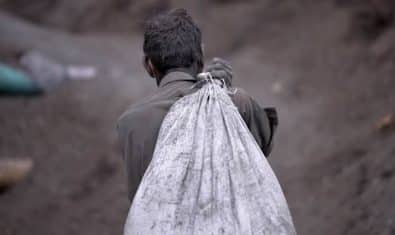The government of Pakistan recently completed the Metro bus project in Islamabad. Is it a success? There have been mixed views.
They range from people criticizing the effort and substantiating their critique with pictures of the project being flooded in rainy season to praise for the effort contributing to economy’s progress regardless of the drawbacks. This is not the only project in Pakistan which has been criticized either on irrational or reasonable grounds and it is true for projects in every field, not just infrastructure.
Development and telecom sectors have faced their fair share of criticism. What if there was a specialized group of people who were to find solutions to specific problems? People from around the world learned in the specialized field, dedicated to solve one problem.
Why think tanks?
The questions that arise are: Why is there a weak link even existing, waiting to be attacked upon? Why the projects are not effectively planned? Why is there a deficiency in long term thinking? The answer lies in the absence of a research culture in Pakistan: we don’t think. We don’t analyze. We simply act.
One might argue that there is no time to do research and a detailed analysis when undertaking a project. This is why there is a dire need of independent research organizations i.e. think tanks in Pakistan – to investigate, to scrutinize thereby providing direction, vision and most importantly sustainability to all sectors of the country.
Leading global economies are governed by think tanks. One team of experts (some imported from other countries) to ensure that there are viable solutions to concurrent problems and their results will be realistically be achieved within a certain period of time.
Think Tanks are needed to breathe air into the intellectually disabled and short sighted business culture in Pakistan
Pakistan lacks think tanks in every field; there are no specific organizations to determine and guide on how to go about things. They are needed to breathe air into the intellectually disabled and short sighted business culture of the country: to act as a bridge between the leadership of these sectors and the most sustainable practical solution available.
For example, how amazing would it be if there were intellectuals who were thinking about eliminating energy issues from Pakistan, and they were experts from energy sector with global exposure, working to advise government or private companies on ways to generate or conserve energy. The knowledge produced by these intellectuals would come in handy for not only new projects but to make the existing ones more sustainable.
These think tanks could be funded by the government or work on contract based funding, either way, they need to exist.
Need of Think Tanks in the Telecom Sector
In case of the Telecom sector, the only constant is change. The gigantic leaps in technology have to be followed by advancements in telecom. Unfortunately, Pakistani Telecom industry doesn’t have any thinkers to advise the companies on how to adapt to this change. There is nobody to counsel them on how convert opportunities into profits, adapt to the changing dynamics of the market or where possible, change the dynamics of the market themselves. This is where think tanks will prove to be useful; to give advice and counsel.
Furthermore, their services could be acquired to do research and write papers on dealing with decreasing ARPUs (average revenue per user) and increasing cost; the information then being used to conduct an analysis on how to increase profits. This is not the only research having a substantial importance in this sector.
In telecom, lack of research results in imitative behavior, similar products and the industry’s progress being hindered
Research on market, industry trends, technologies, business intelligence, associations and competition is just as equally important. Most telecom companies don’t have the human resource which could be doubled as research experts and therefore most of these areas are ignored when a new project is launched. This results in an imitative behavior, similar products and the industry’s progress being hindered.
Therefore, think tanks are needed not only to fill the gaps pin pointing the weaknesses of projects in all sectors of the country; they are also required to activate a research culture which fertilizes the development and initiatives in these fields.
So that rather than acting on something and realizing that it was a mistake, we could use think tanks to research, strategize and then act – not leaving any room for an oversight. They will, above all, assist in creating a culture which enhances our country’s potential rather than curbing it.



























Itni lambi daastaan na likha karo yara!!!
All we need is just some hardcore anti-corruption Tanks :D
Dhuzam Dhuzam ! No Corrupt Leaders, No bakwaas diluted projects.
no wonder why these government scoundrels (legislative + executive/administrative (military) +judiciary) are so keen on privatization (read outsourcing) everything. Bl00dy munafiqs/kufaar.
Remove the Shoora (Parliament) n create mini shooras ? What would be criteria for the members of these mini-shooras. Would they muslims with immpeccable qualities. ? Catch 22 baby.
Shoora waali baat sab bouncer geya bhai.